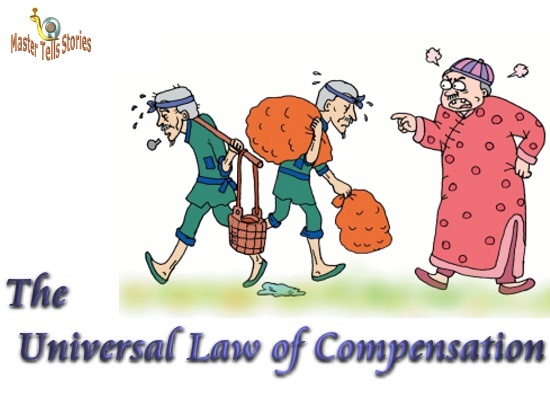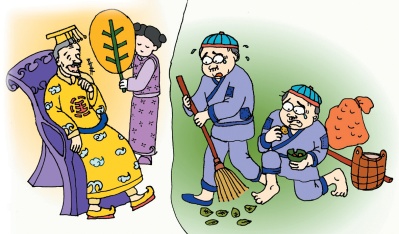
Spoken by Supreme Master Ching Hai, Hsihu, Formosa, February 13-18, 1989
(originally in Chinese) MP3-4I once talked about the “law of compensation,” but I’m not the only one who has discussed it; people spoke about it in ancient China as well. For example, The Book of Liezi (a Taoist philosophical text written during the Warring States Period of ancient China) contains a story about a very rich man who had many servants. The man was mean to his servants, making them toil until they were exhausted, but giving them very little food in return. And when they fell ill, he didn’t give them medicine, nor did he allow the elderly workers to rest.
One of these very old servants had to work all day without rest. However, when he slept at night, he often had very good dreams. Perhaps this was similar to the experiences of spiritual practitioners like us. I wonder if he practiced the Quan Yin Method. In his dreams he became a king, waited on by many attendants and living a happy, prosperous life. However, when he woke up in the morning, he would resume his role as a servant. This went on day after day. Therefore, every day he longed for the night to set in. After he finished his work, he would quickly go to bed to enjoy his dreams. (Master and everyone laugh.) His world was happier at night. So every day, he waited for the sun to set to enjoy himself.
However, the situation was just the opposite for the rich man. He also had dreams every night, but they were nightmares. In his dreams, he became a slave and servant who was punished by others. He had to work all day until he was fatigued, but he hardly had enough food to eat or clothes to wear. He suffered from hunger, the cold, exhaustion, ailments, hard labor and all kinds of distress. Every night, the two of them dreamt, but one enjoyed sweet dreams while the other was tortured by nightmares.
It was exhausting to have nightmares every night, and one day, the rich man couldn’t bear t any more; so he went to a dream analyst and told him about his agonizing situation. The dream reader said, “It’s because you’ve been abusing your workers too much during the day that you have to bear your karma by going through this painful dimension at night. The law of he universe is fair. No one has to suffer too much, and no one should enjoy himself exceedingly.” Illuminated by these words, the wealthy man immediately went home and began treating his servants better, gave them enough provisions, and took loving care of them. So his illness healed gradually, and he stopped having so many bad dreams.

Such examples of karma-bearing really exist; they’re not fiction. When someone scolds us, our karmic hindrance transfers to him. So don’t fear being scolded by people; just worry that no one scolds you, that no one is so compassionate as to scold you. Even when people treat us badly, we should still be grateful to them. This world is truly topsy-turvy! Occasionally, we also have to train ourselves by allowing ourselves to suffer a little instead of being too comfortable. When we’re too comfortable, we become uncomfortable in other respects, for instance in spiritual respects. Very few people can feel good in both the material and spiritual domains; because if we’re too comfortable in every aspect, it’s difficult to develop our compassion and wisdom, and our blessed rewards are also reduced.
